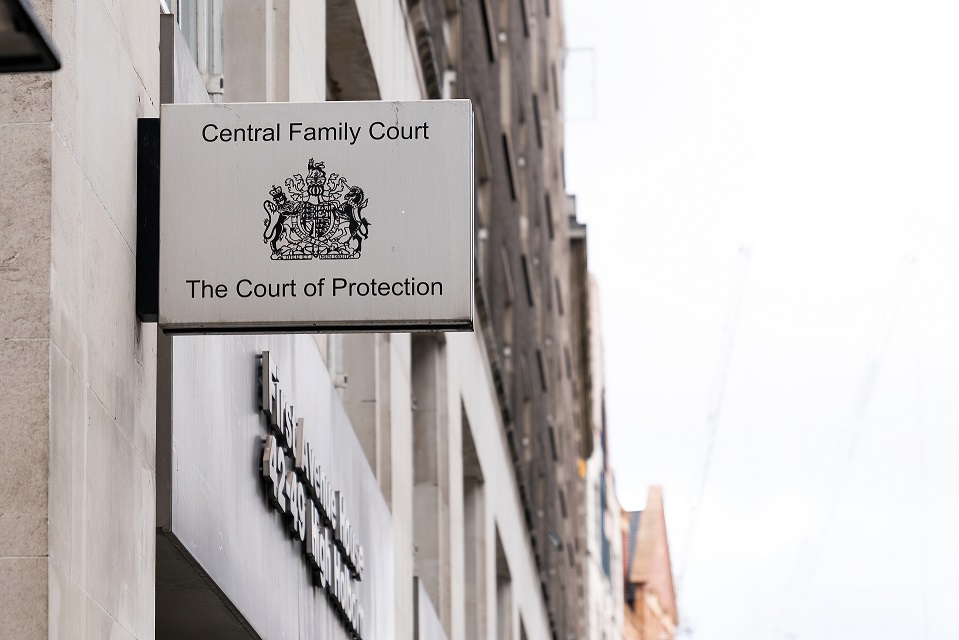On 29 October 2021 the President of the Family Division, Sir Andrew McFarlane, published a report with his conclusions on the issue of transparency in the family courts. His view is clear: it is possible to enhance public confidence in the family courts whilst also safeguarding the privacy of the families and the children who turn to the courts for protection and resolution. Increased transparency in the family courts is plainly a top priority for the President; it should be the ‘new norm’.
The issue of transparency has been “rumbling on continuously for 30 years and maybe longer and it has never been properly addressed”, as the President reports. Family cases rarely attract media interest unless they are big money cases or celebrities are involved. However, there are now far more legal boggers that are keen to publicise the more inconspicuous cases. In reality, these cases form the vast majority of many family lawyers’ caseloads. It must be fair to say that we can most definitely expect much more publicity of family matters than there has been hitherto, and clients should be aware of this.
The President’s call for the “major shift in culture” is in the wake of a history of accusations of secrecy. He considers that section 12 of the Administration of Justice Act 1960, which prevents contemporaneous reporting of most family law cases in the absence of a judge’s consent, was intended to “protect and support the administration of justice”; however, it has in fact had “the contrary effect of undermining confidence in the administration of family justice to a marked degree”. The President therefore recommends urgent review of the provision.
The President’s report provides for representatives of the media being allowed to attend family court hearings and to report publicly on what they see and hear and the public availability of certain court documents. However, it provides that restrictions are to remain regarding the anonymity of children and families, to keep the intimate details of their private lives confidential. The President’s review also calls for a scheme of compulsory case data collection at the end of each case, to enable evidence-based assessments on the operation of the family justice system.
The report has divided opinion in the family law world, and it can only be true that some family court judges will be apprehensive about the impact of the changes. However, the President is committed to try and bring other judges in line with his proposal. The report recommends that family judges publish anonymised versions of at least 10% of their judgments every year, which seems a sensible amount. It cannot be ignored that written judgments take considerable judicial time to produce. The President will press for the establishment of an Anonymisation Unit which will carry out the anonymisation process.
Financial cases
Mr Justice Mostyn and His Honour Judge Hess launched their consultation with the proposal of introducing a standard reporting permission order (“RPO”) in financial remedy proceedings on the same day as the President’s report. The consultation is due to close on 26 November 2021. As per the consultation, the “primary purpose of the proposed RPO is to codify and clarify the existing rules concerning the reportability of financial remedy proceedings so as to achieve a better balance between privacy of the parties, on the one hand, and transparency and freedom of expression, on the other”.
On the proposal, the RPO will be issued as a standard step immediately following the filing of the application for financial remedy; although, it could be reviewed at the First Appointment. The order would enable a journalist or legal blogger to have sight of the financial documents filed by the parties, albeit limited to those documents that are necessary to allow the journalist or legal blogger to understand what the case is about. The consultation acknowledges that there will inevitably be an issue as to the extent the journalist or legal blogger should be allowed to refer to the protected information in the published report. The consultation proposes that only a “broad description” of the financial circumstances would be publishable; will this not inevitably result in secondary litigation as to what comprises a “broad description”?
Two recent judgments of Mostyn J directly consider the issue of transparency in financial remedy cases.
BT v CU 2021
In this case, Mostyn J initially permitted his judgment to be published with anonymity provided to only the children of the family and not the wife and husband. He was later persuaded by argument put forward by the husband’s counsel and permitted the judgment to be republished with anonymity for all, to protect the children of the family. Despite his decision in this case, he held “I no longer hold the view that financial remedy proceedings are a special class of civil litigation justifying a veil of secrecy being thrown over the details of the case in the court’s judgment” 105]. Mostyn J’s future intention in relation to anonymisation in financial remedy cases is clear “my default position from now on will be to publish financial remedy judgments in full without anonymisation, save that any children will continue to be granted anonymity. Derogation from this principle will need to be distinctly justified by reference to specific facts, rather than by reliance on generalisations” [113].
A v M 2021
In this subsequent case, Mostyn J developed his earlier rationale and held “There seems to have been a certain amount of surprise caused by my decision in BT v CU to abandon anonymisation of my future financial remedy judgments. Views have been expressed that I have snatched away an established right to anonymity in such judgments. This is not so. I do not believe that there is any such right” [105]. He therefore queries whether there ever was such right to anonymity.
Children cases
CAFCASS have published their response to the President’s report. They have asserted their support for increased transparency in relation to the conduct of assessments; however, they consider a balancing exercise should be carried out against the need to safeguard parties within proceedings. They have emphasised that children’s wishes and feelings must be prioritised, in that the situation whereby young people discover facts about their background through media reports must be avoided.
The President’s report is just the start in the shift to increased transparency in family proceedings. The Transparency Implementation Group will progress the proposed changes. There may well be an increased uptake of alternative forms of dispute resolution such as mediation, arbitration, and collaborative law, all of which can be very effective alternatives to court proceedings. At iFLG we promote the consideration of alternative dispute resolution. Prof David Hodson, Special Counsel at the firm, is a mediator and arbitrator.
Annie Boxer
[email protected]
The International Family Law Group LLP
www.iflg.uk.com
© November 2021
- Annie Boxerhttps://iflg.uk.com/team/annie-boxer
- Annie Boxerhttps://iflg.uk.com/team/annie-boxer
- Annie Boxerhttps://iflg.uk.com/team/annie-boxer
- Annie Boxerhttps://iflg.uk.com/team/annie-boxer











